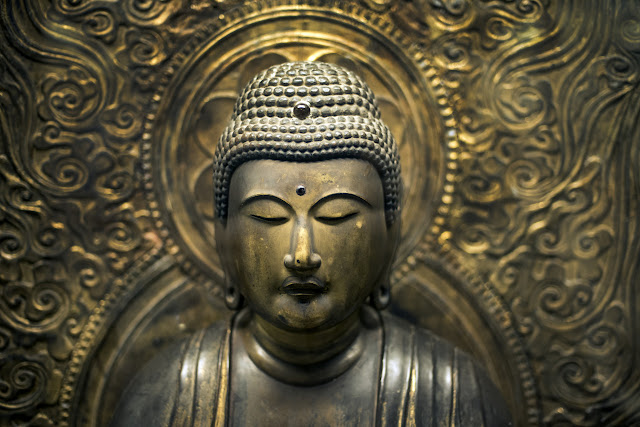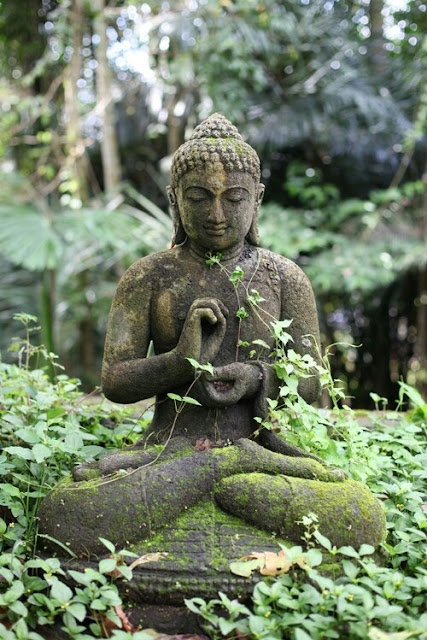This is an excellent resource for BUDDHISM & SHINTŌISM IN JAPAN, A-TO-Z PHOTO DICTIONARY OF JAPANESE RELIGIOUS SCULPTURE & ART.
BASIC TEACHINGS OF THE BUDDHA - THE THREE UNIVERSAL TRUTHS from Following the Buddha's footsteps
1. Nothing is lost in the universe The first truth is that nothing is lost in the universe. Matter turns into energy, energy turns into matter. A dead leaf turns into soil. A seed sprouts and becomes a new plant. Old solar systems disintegrate and turn into cosmic rays. We are born of our parents, our children are born of us. We are the same as plants, as trees, as other people, as the rain that falls. We consist of that which is around us, we are the same as everything. If we destroy something around us, we destroy ourselves. If we cheat another, we cheat ourselves. Understanding this truth, the Buddha and his disciples never killed any animal.
2. Everything Changes The second universal truth of the Buddha is that everything is continuously changing. Life is like a river flowing on and on, ever-changing. Sometimes it flows slowly and sometimes swiftly. It is smooth and gentle in some places, but later on snags and rocks crop up out of nowhere. As soon as we think we are safe, something unexpected happens. Once dinosaurs, mammoths, and saber-toothed tigers roamed this earth. They all died out, yet this was not the end of life. Other life forms like smaller mammals appeared, and eventually humans, too. Now we can even see the Earth from space and understand the changes that have taken place on this planet. Our ideas about life also change. People once believed that the world was flat, but now we know that it is round.
3. Law of Cause and Effect The third universal truth explained by the Buddha is that there is continuous changes due to the law of cause and effect. This is the same law of cause and effect found in every modern science textbook. In this way, science and Buddhism are alike. The law of cause and effect is known as karma. Nothing ever happens to us unless we deserves it. We receive exactly what we earn, whether it is good or bad. We are the way we are now due to the things we have done in the past. Our thoughts and actions determine the kind of life we can have. If we do good things, in the future good things will happen to us. If we do bad things, in the future bad things will happen to us. Every moment we create new karma by what we say, do, and think. If we understand this, we do not need to fear karma. It becomes our friend. It teaches us to create a bright future.
The Buddha said,
"The kind of seed sown will produce that kind of fruit.
Those who do good will reap good results.
Those who do evil will reap evil results.
If you carefully plant a good seed,
You will joyfully gather good fruit."
Dhammapada
The Buddha, A Film by David Grubin























1 comment:
I like the basic teachings of the Buddha... gives me reason to pause.
Post a Comment